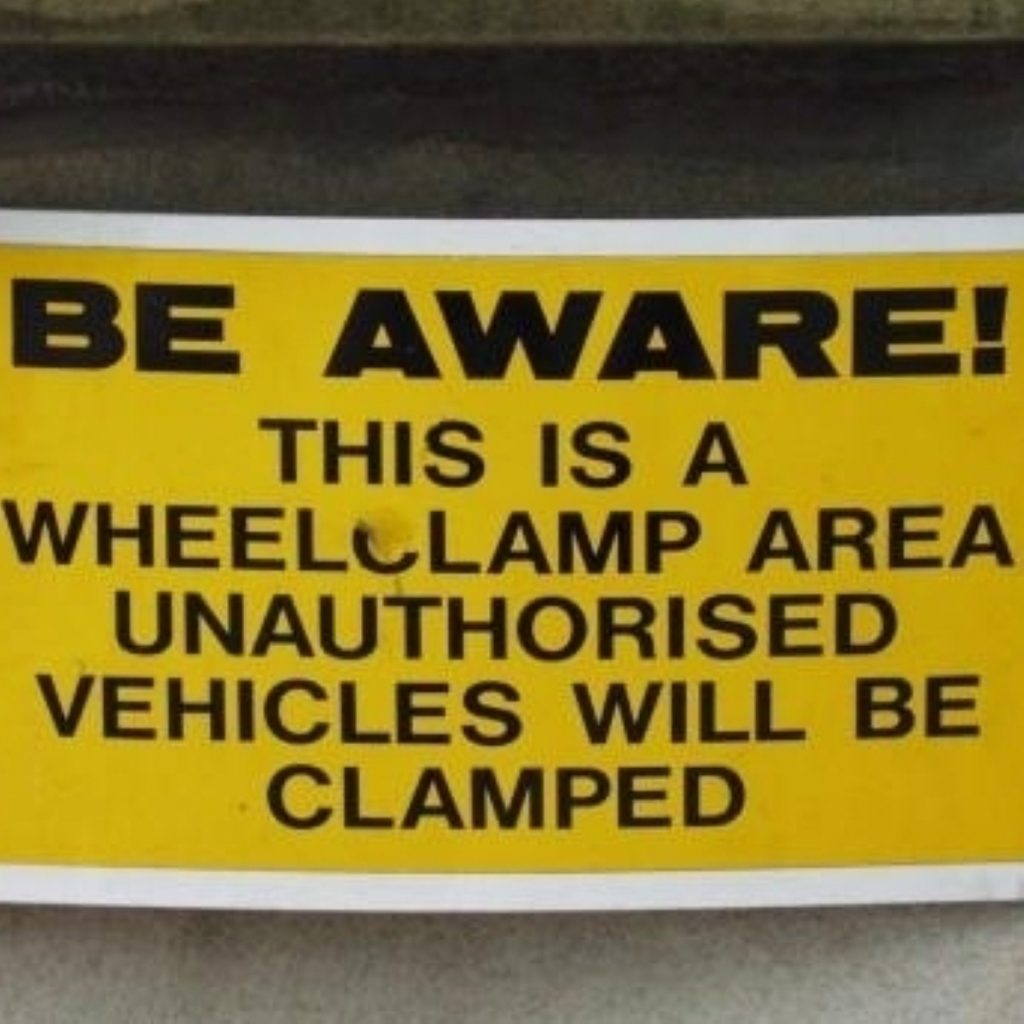DfT to clamp down on over-zealous councils
Councils are to be banned from aggressively clamping motorists to raise revenue under new government proposals.
The Department for Transport (DfT) has told councils to give motorists who overstay their allocated parking time a 15 minute grace period, while those that continue to park without a valid ticket should not be routinely clamped.
Instead, councils should target persistent offenders and tax evaders.
A DfT spokeswoman said: “One illegally parked car can, and frequently does, cause traffic jams. This is exacerbated by some motorists who regularly and deliberately contravene parking regulations.


“These persistent evaders are often not registered, or not correctly registered, on the DVLA database, and therefore think that they can get away with not paying any penalty charges.”
The DfT proposals, published for consultation last week, would ban councils from setting tickets on the number of cars clamped or tickets issued.
In a bid to ease motorists’ complaints, they state there are “limited circumstances” for clamping and it should only be used when it is warranted by the seriousness of the offence.
Vehicles should only be towed when they disrupt the traffic flow while all clamping and towing should be avoided at night because of the inconvenience and potential danger this causes to motorists.
“There is a perception that motorists are often unfairly penalised by parking attendants who are only interested in issuing as many tickets as possible. We want to ensure the penalties they issue are fair and justified,” transport minister Rosie Winterton told the Times.
David Sparks, chairman of the Local Government Association’s transport board, said many councils had already ceased using clamping to raise funds and only clamped persistent offenders.
He said: “Most don’t have targets or financial incentives for the number of tickets issued. But councils must be allowed to estimate how much money will come from parking fines so that they can undertake good financial planning.”
He added: “Every councillor in the country will have had people complaining about cars parking illegally while at the same time expressing unhappiness about parking charges. The regulations are there for everyone to abide by to maintain road safety and traffic flow.”
Edmund King, the executive director of the RAC Foundation, said motorists would welcome the move, adding the measures should pave the way for a fairer regime.
He said: “Clamping a car for overstaying on a meter makes no sense, as the parking place is then blocked for a longer period.
“Clamping, both on-street and off-street, should only be used to target persistent offenders as a last resort. Clamping is a crude activity, which should have been outlawed at the time of Dick Turpin.
“Overzealous enforcement, confusing signs and lines, and the belief that councils are using parking fines to raise revenue rather than keep the traffic moving are all issues that motorists raise with us.”
In 2005 councils made £1.16 billion from parking fines and charges, nearly double the revenue in 1997.












